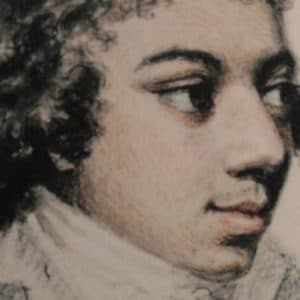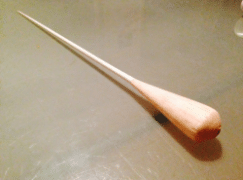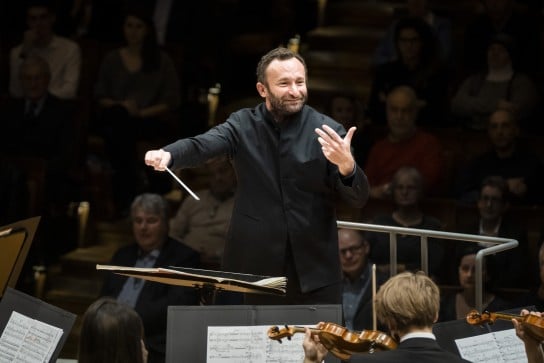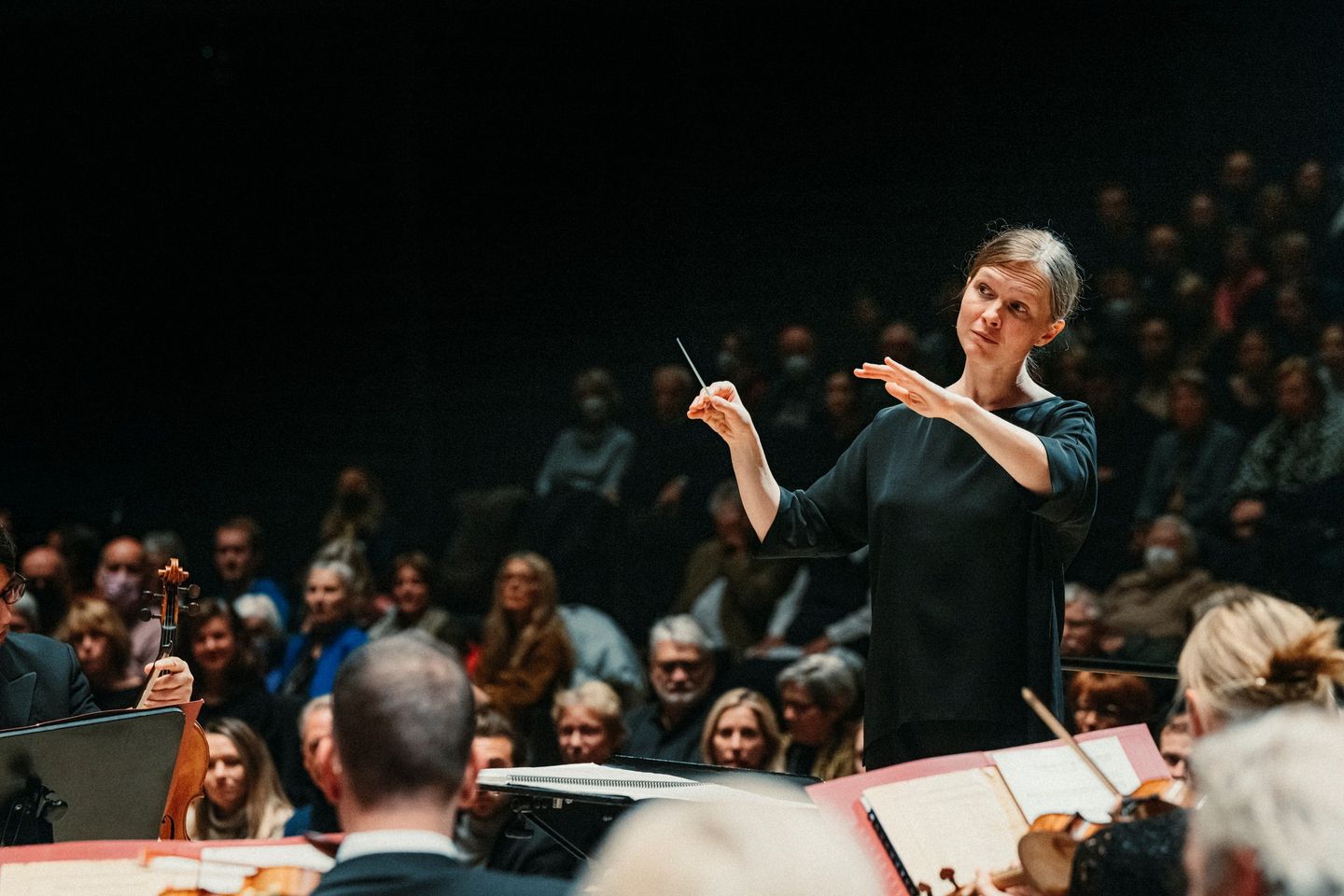Thousands demand memorial for Beethoven’s African violinist
mainMore than 15,000 people have signed a petition to erect a plaque in Bath, England, in memory of George Polgreen Bridgetower, a violinist who gave the first performance with Beethoven of the future Kreutzer Sonata.
The pair soon fell out and Beethoven renamed the sonata after a more famous French violinist.
Bridgetower (1778-1860), born in Poland to an African father and German mother, grew up on the Esterhazy estate in Hungary, where he was taught the violin by members of Haydn’s orchestra. The King of England, George III, was impressed by his playing and paid for the rest of his education. His connection with Beethoven was the high point of his career. Bridgetower returned to London from Vienna soon after and lived quietly.
The petition is seeking a plaque on the Assembly Rooms, Bath, where he is known to have played.







I’d just put the plaque up, he’s an interesting, though not remarkable figure in 19th Century music and lived most of his years in Britain. They certainly have plaques around England for people who did less. BTW, it was George IV, not George III who paid for his music education. That said, if this petition has 150k signatures, the vast majority of people are hearing black and then blah, blah, blah, Beethoven, blah, blah, blah. They have no real idea who he was.
15K , not 150; but your point may remain valid.
What if someone were to “discover”… through some really serious scientific research… that Beethoven “identified” as black?
I mean, it could be done. If there was the will.
And just think of the good it would do to Humanity. The arguments that would be avoided. The balance it would bring.
Beethoven – the greatest black composer of all time… second only to Mozart.
Rogerio:
What if it actually doesn’t matter, since it is the greatness of music that matters?…
Or has “racial supremacy” a one-way road legitimacy now, in the name of BLM?…
@save the met.
Sorry, but I rather think it was King George III who sponsored Bridgetower. His Majesty had strong musical interests and studied the violin with Johann Peter Salomon who was responsible for bringing Haydn to England.
It seems that under King George’s instigation Bridgetower studied the violin with Giovanni Giornovichi a.k.a Ivan Jarnovic’ who resided in the UK during the 1790s.
Finally, I believe I read somewhere that Bridgetower wrote a violin concerto. Can anybody verify this?
At the Bath Assembly Room concert on December 3, 1789 (when he would have been 10 or 11) he played two concertos, by Viotti and by Giornowich [sic]. But I couldn’t find any trace of a violin concerto by Bridgetower himself. He composed an “elaborate and rich” anthem for his Cambridge doctorate in 1811, and the British Library has some of his other compositions, including a book of piano exercises, Diatonica Armonica (1812). There is an article from 1908, probably rather out of date , but with a lot of information from contemporary records, including this interesting quotation from Samuel Wesley: “George Bridgetower, whom they used to denominate the African Prince, is justly to be ranked with the very first masters of the violin. He practised much with the celebrated Viotti, and imbibed largely of his bold and spirited style of execution. It was a rich treat for a lover of the instrument to hear him perform the matchless and immortal solos of Sebastian Bach, all of which he perfectly retained in memory and executed with the utmost precision, and without a single error.”
(https://zenodo.org/record/2355937/files/article.pdf)
You may have read about it on this site:
https://chevalierdesaintgeorges.homestead.com/Bridge.html
which says “He [Bridgetower] gave two concerts while there [Dresden] (24 July 1802 and 18 March 1803). On the first was performed the first symphony by Beethoven, the violinist’s own concerto (not extant?) and a cello concerto by his brother (also not located).”
But it gives no reference – very annoying. However it is a full and informative article, and it has an extensive bibliography.
A last word on the Beethoven op.47 Sonata ‘in une stile molto concertante’: a suggestion by Peter Sheppard Skaerved:
“I immediately launched into my habitual chitchat about the Concertante Wesley Sonata, which, I suspected, Bridgetower had shown Beethoven when he met him in Vienna, and which may have been one of the stimuli for the composition of the now-called Kreutzer Sonata Op 47.”
https://www.peter-sheppard-skaerved.com/2010/01/samuel-wesley-sonata/
https://www.bl.uk/people/george-bridgetower# Do your research before commenting; I did. It was George IV. By the time Bridgetower needed tuition, George III was non copus mentis.
Do your research … Bridgetower’s patron and employer was the Prince of Wales, who only become George IV in 1820, when Bridgetower was an established adult musician. In 1789 George III had recovered from his first bout of illness, and was *compos mentis* (though with further periods of illness) until 1810, when he became incapable, and the Prince of Wales became Prince Regent.
I agree. Why not?
And of course, there’s the whole reason why he fell out with Beethoven and returned to London to die in obscurity; after the triumphant premiere of the Kreutzer, he went with Beethoven to a tavern for a pint and he made an off color remark about a woman in the tavern that just happened to be someone Beethoven knew. Beethoven flew into a rage and that was the end of poor Mr. Bridgewater, cancelled by 1803 #metoo.
That’s the “official” story. How many people of color “made it” in the centuries of colonization? None.
Pretty sure that’s what they wrote to find an excuse to further segregate him.
But of course that can’t happen, the west is the cradle of justice and freedom and peace an you “good” and others “bad”, right? That’s why you don’t have discrimination at all and……
……
…… OH WAIT!
He wasn’t segregated or cancelled. He was a very successful violinist both before and after his visit to Vienna; he spent most of his life in London, performing and teaching; he was awarded a degree by Cambridge University; he was under royal patronage. In 1816 he married the daughter of a wealthy London businessman.
He also had a brother, Frederick, a professional cellist. Frederick lived at one time in Dresden; he visited London, where performed at a concert with George, and then Dublin, Ireland, where he continued to perform; he settled there and married a local girl, the daughter of a printer.
As the mixed-race sons of servants to the aristocracy, George and Frederick certainly “made it” in no uncertain terms. It is not known whether they met with racial discrimination, but there seems to be no evidence for that. An excellent online source for the lives of these two Bridgetower musicians is Sarah Murden’s blog: https://georgianera.wordpress.com/2020/09/16/ggeorge-bridgetower-violin-virtuoso-part-1/ (with links to parts 2, 3 and 4)
Thank you so much for this information and the link to the All Things Georgian website (which looks fascinating, besides just the information there about Bridgetower). I was not familiar with this story prior to reading Norman’s post, and am curious to learn more than what I found on Wikipedia.
He wasn’t segregated or cancelled. He was a very successful violinist both before and after his visit to Vienna; he spent most of his life in London, performing and teaching; he was awarded a degree by Cambridge University; he was under royal patronage. In 1816 he married the daughter of a wealthy London businessman.
He also had a brother, Frederick, a professional cellist. Frederick lived at one time in Dresden; he visited London, where performed at a concert with George, and then Dublin, Ireland, where he continued to perform; he settled there and married a local girl, the daughter of a printer.
As the mixed-race sons of servants to the aristocracy, George and Frederick certainly “made it” in no uncertain terms. It is not known whether they met with racial discrimination, but there seems to be no evidence for that. An excellent online source for the lives of these two Bridgetower musicians is Sarah Murden’s blog: https://georgianera.wordpress.com/2020/09/16/ggeorge-bridgetower-violin-virtuoso-part-1/ (with links to parts 2, 3 and 4)
Simon Scott
March 31, 2021
Many of us also want the so-called Kreu
I apologize for the repetition. With the new design, if you enter your email address and submit, the address shows up with the first bit truncated so it looks as though you entered it wrong. That’s why I did it twice. (I don’t know how the bit at the end got in.)
Of course we must bring cooler into it mustn’t we. Actually if you read history, Bridgewater was celebrated for his African ancestry by society of the day so it appears to have been a help rather than a hindrance to him.
M McAlpine – BridgeTOWER, please. Bridgwater is a town in Somerset (and Hightower is in Police Academy).
In fact, contrary to today’s general opinion, there have been quite a number of ‘coloured individuals’ who lived and worked successfully in Europe during the period of ‘suprressing colonialisation’.
The situation of people In Europe from African descent is more complex and more nuanced than any woke idea could define:
“For teachers and students of history a resultant practical problem is the absence of clear references to race in documents such as census data where it might be quite useful. Moreover, among scholars, few have found the experience of blacks in Europe to merit special attention; and even those few of African descent who have achieved high status have done so by following the accepted conventions and by avoiding drawing attention to either their African heritage or to African characteristics in their societies. This has been left to blacks in former colonies, not in Europe.”
“The actual living experience of blacks in Europe appeared to be marked by smooth integration into European society, with the role of lower-class blacks determined very much by that of their masters or employers.”
https://www.blackpast.org/global-african-history/black-presence-pre-20th-century-europe-hidden-history/
An “off-colour” remark eh? Smash all Beethoven’s statues, ban all performances of his music and destroy his works. Actually Beethoven had rows with just about everyone so there’s nothing remarkable about this.
Beethoven’s A major sonata Op. 47 must henceforward be called the Bridgetower Sonata. Any mention of the previous name is racist as it perpetuates the shameless deracination of a work dedicated to a black musician. It’s also an act of cultural appropriation. We must trace any descendants of Bridgetower (collateral and direct) so that they can be compensated for any loss incurred by their ancestor’s being deprived of celebrity status through his association with the greatest living composer at that time. (OK – to be precise – the greatest tainted white colonialist composer – after all, he did write variations on Rule, Britannia didn’t he?)
I think a blue plaque would be a wonderful idea – I bet that once it’s installed, hordes of Afro-Carribeans will pack the Wigmore Hall to pay homage to Bridegetower every time the sonata is played.
While we are about it, why not put plaques on the houses of every single obscure instrumentalist who lived in the UK? Commission them from Wedgewood – that would give them a huge boost at a time when businesses need all the support they can get to survive during the pandemic.
SD’s mistake about George III must come from an error in the petition, which says “at 11 he played for George III at the Bath Assembly Rooms”. He had earlier played for George III at Windsor (so should there be a plaque there too?), but the King was not at the Bath concert.
It is clear that the son was indeed a remarkable violinist, but that the father was a somewhat dodgy character, and a bit of an embarrassment. The idea in the petition that “he was tutored by Haydn” may have originally come from the father’s inflated publicity campaign. Somebody at Esterhazy must have taught him well, but would it have been the exalted Kapellmeister himself?
Many of us also want the so-called Kreutzer Sonata renamed the Bridgetower sonata. Kreutzer never played it.
Moonlight never played his sonata either.
The English aristocrat Sir Sebastian Moonlight passed through Vienna in 1801 and wanted to visit famous composer Beethoven, since B was on the Grand Tour list. But B did not want to receive him since he was working on a new piano sonata. Sebastian was persistant however, and waited in front of B’s house hoping to get a glimpse of the famous man. Since it was summer, B had his windows open and Sebastian was the first to hear the sounds of ‘his’ sonata. After some time, he applauded and yelled ‘Bravo’ in the warm summer night, drawing B’s attention and anger, which resulted in throwing his full chamber pot to the poor tourist, which chased him away never to return. In the depressed mood B got into, the sonata got the flavor of misantropy for which it is rightfully celebrated.
Moonlight never wanted to listen to the sonata and back in Londen he would walk out of a concert if it were performed.
Very interesting. I never believed the ridiculous story about the poet on the lake. Can you provide a link for more information about Sir Sebastian? I cannot find him on Wikipedia.
Wikipedia has as yet not discovered the marvellous book ‘Eccentric Peerages of Great Britain’ by Sir Andrew Weston Wrenbury from 1821 with descriptions of quite unusual peers (even for British standards) circulating at the Pall Mall clubs. He was an insider and knew Moonlight personally, as he did Coleridge and Byron, meeting them at the Eccentric Club and the Marylebone’s. We have here in the library one of the three still existing copies of the first edition, the other two are in Berlin and Bratislava. It is quite possible that there never have been printed more copies, but we cannot be sure. Also it is not entirely impossible that there never was more than one edition, about which we cannot be sure as well. History is full of shadowy corners.
And, reportedly, Kreutzer did not care for the sonata. However, it is one of my favorites…
Beethoven already made the decision not to call it Bridgetower.
Shall we rename the novella of Tolstoy and quartet of Janacek as well?
What it comes down to is this—there is often a larger context at hand and the term Kreutzer Sonata—the sonata Kreutzer himself didn’t care for but Beethoven stuck to anyway—is a far more interesting story.
Bridgetower was born in Poland. Had a European mother. Loved and studied in continental Europe among the royalty. So he and Beethoven had a falling out—should we rename the piece for what reason?
This is all becoming so ridiculous it’s laughable, and takes away from more legitimate concerns
Excellent point Gerry!
Stupidity rules, you know!
also Bridgetower was a graduate of Trinity Hall, Cambridge
Poor old Bridgewater is a testament to Beethoven’s unforgiving nature. They fell out over something trivial and Beethoven wouldn’t relent. Ironic that the Kreutzer Sonata is a monument to Beethoven’s musical genius and his unbelievable stupidity, having dedicated the sonata to someone who despised it and never played it, while the inspiration behind it was left forgotten.
Plenty of other mediocre violinists we could memorialize while we are at it… or is this because he’s…ohhhh….yeah…thats why.
(anybody else hate this new version of the site?)
So Beethoven got inspired by and wrote his most famous sonata for a “mediocre” violinist? I guess to you Beethoven was not only deaf but also Stupid.
Or are you calling him mediocre because….
Yeah, thats why….
Me.
Yeah, Hightower must have been truly mediocre to have the career he had. Back in the early 1800s people were falling all over themselves to promote anyone with dark skin, regardless of quality, so his success must be in opposite proportion to his merit. /eyeroll
Provided it doesn’t go overboard on his racial origins or his brief connection with Beethoven, a good idea. He was quite widely celebrated, and continued to perform successfully in the UK after his visit to Vienna; he also taught (piano) and composed. He might not have regarded his encounter with Beethoven as a career high point!
The new web design – too much white space, images too big. It is a bad error to put a heavy black line below the text and above its corresponding image. (I would love a version with just the headlines, no images, as it was in the very old days, but I suppose that is inconceivable now.)
Excellent! Put that plaque up soonest!
One of those round blue plaques? It’s the least they could do.
And I do mean “the least”. I’m not sure what honor Britain bestows that is smaller.
Link anyone? I live in Bath but can’t find any. Agree about the ‘new look’ too. Shall we start a petition to bring the old one back???
The petition is linked in the first line of the post
Duh! Thanks. Done!
Well, that explains a scene in the film Immortal Beloved that I always assumed to be an anachronistic revisionist fiction.